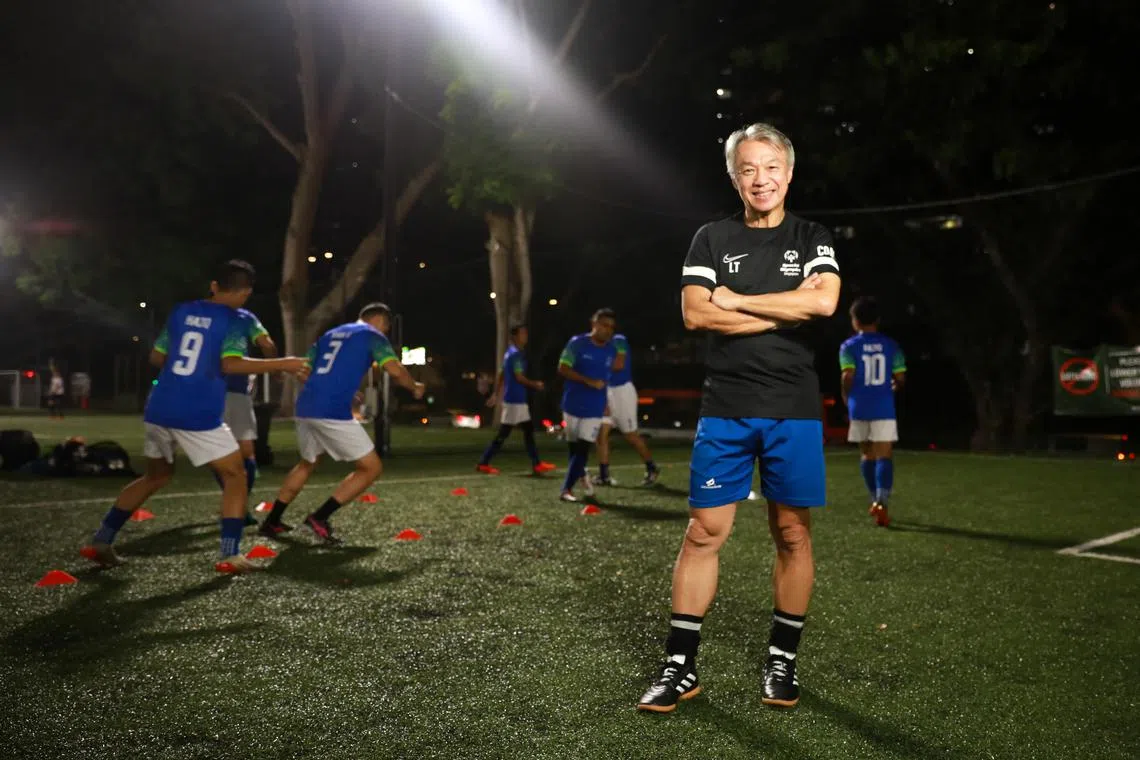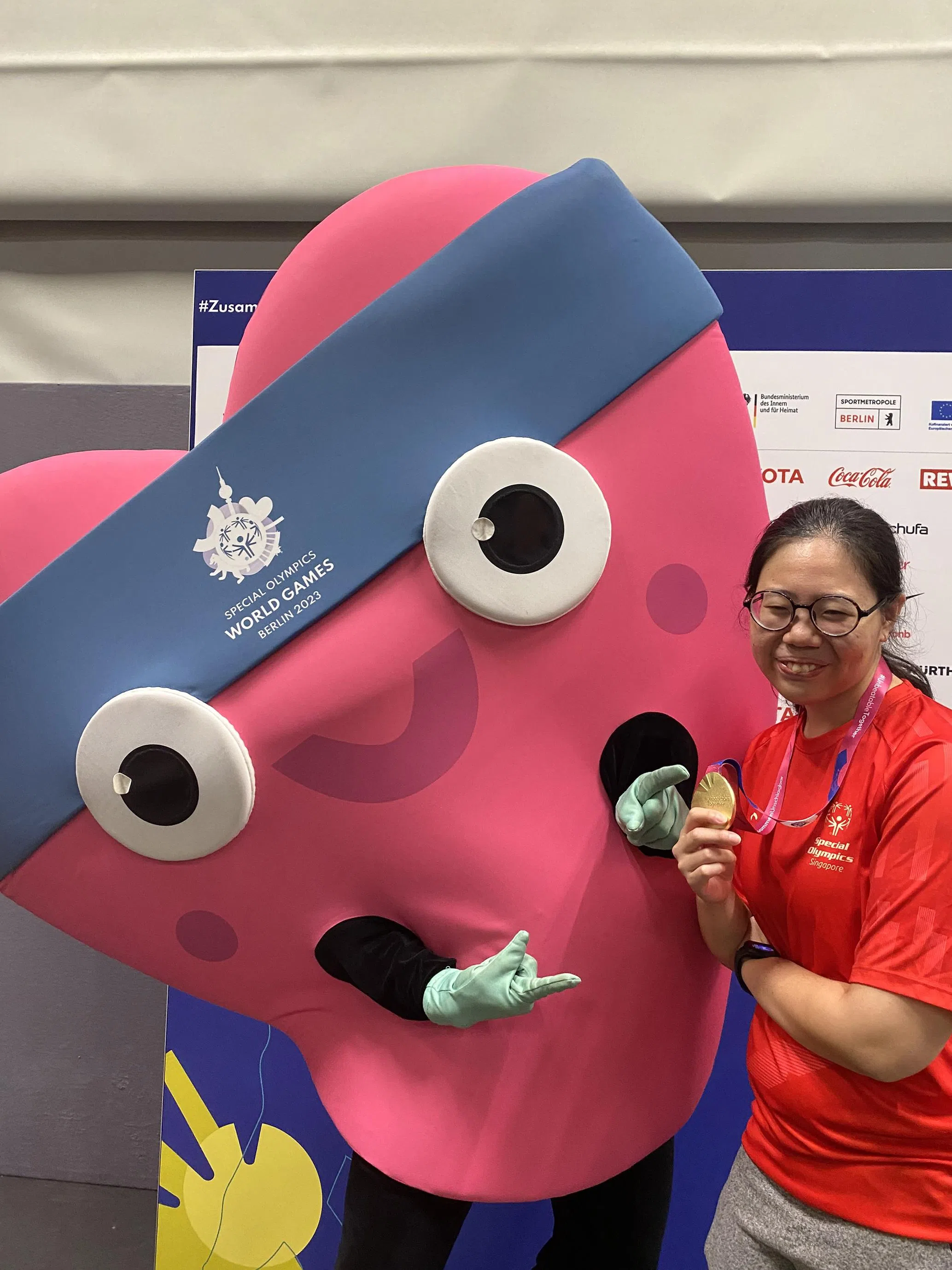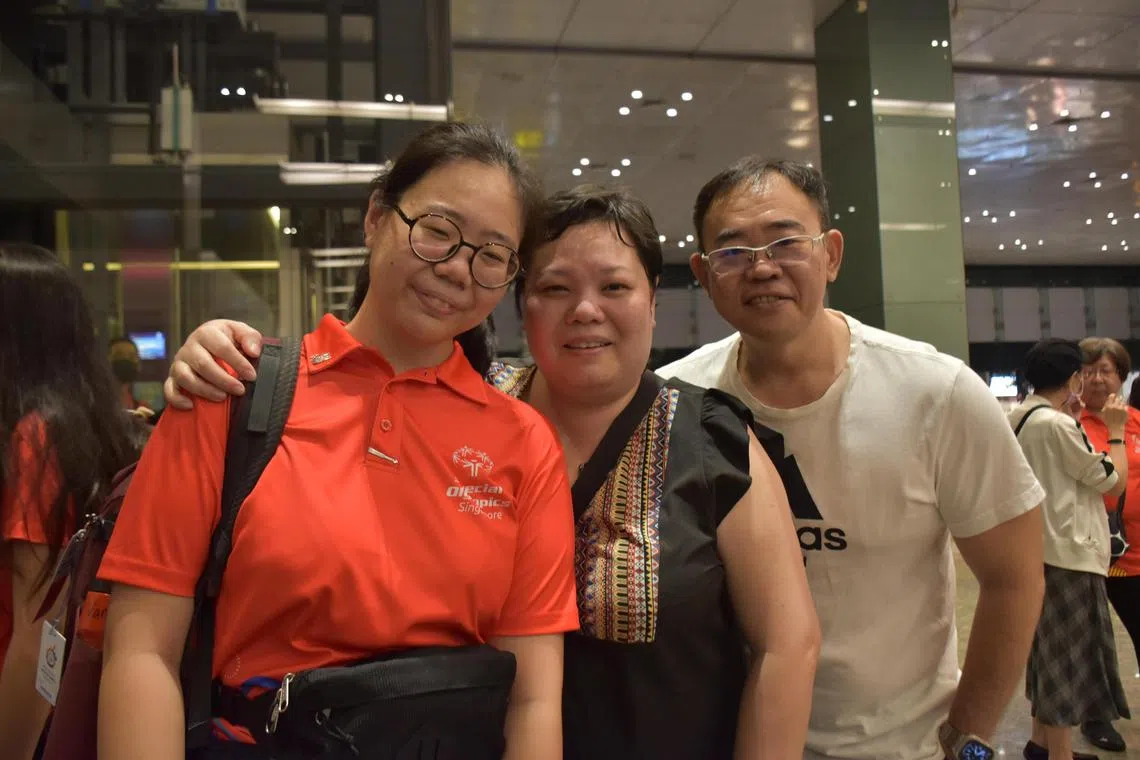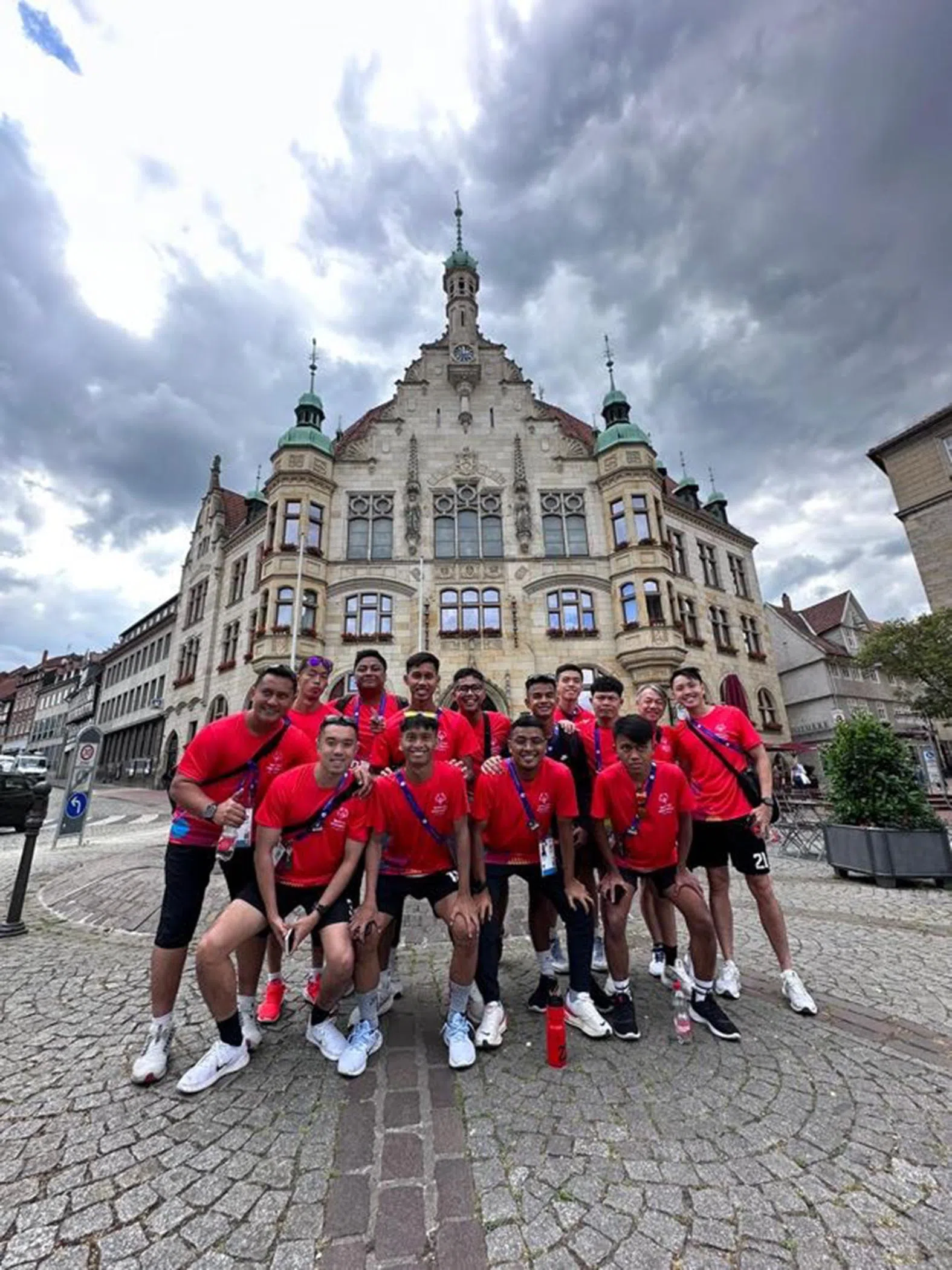Singapore’s athletes win more than medals at Special Olympics
Sign up now: Get the biggest sports news in your inbox

Volunteer coach Lionel Teo and the Special Olympics football team at a friendly match against East Coast United on May 17.
ST PHOTO: RYAN CHIONG
SINGAPORE – Swimmer Vanette Lim may have clinched a gold and a new personal best (PB) at the recently concluded Special Olympics World Games in Berlin, Germany, but the bigger win for her was to travel overseas without her parents for the first time.
Lim was gunning for only a PB in the women’s 50m freestyle, and victory was a bonus for the 20-year-old.
“I feel good that I won the gold medal, but I won’t be complacent,” she said. “I will continue to train hard because I want to lower my timing further for my future races.”
She was diagnosed with mild intellectual disabilities at the age of four, and had difficulties speaking. Her parents moved her to a special school in Primary 4, where she pursued the Workforce Skills Qualifications in baking instead of O levels.
The APSN Delta Senior School student was among 24 athletes with intellectual disabilities from Singapore who were in Berlin to compete in the June 17-25 Special Olympics. The team returned home with six golds, two silvers and two bronzes.
Held every two years since 1968, Special Olympics are the biggest event for athletes with intellectual disabilities – in 2023, over 7,000 athletes from 190 countries were in action across 26 sports.
Special Olympics Singapore shortlists athletes who win national competitions organised by the organisation. But then comes the real test – which is not how good they are in the sport, but whether they are disciplined enough and can live independently when they are overseas.

Ms Vanette Lim had simply gunned for her personal best in the female 50m freestyle. Instead, she won the race.
PHOTO: SPECIAL OLYMPICS SINGAPORE
Lim was shortlisted for the previous Games but did not make that trip eventually. Her mother, Tay Khar Yen, said her daughter was disappointed to miss out. “Sometimes, she might scold herself and say that she is stupid,” she added.
But Lim persevered. She now helps out with household chores and is currently on a work attachment at a Ben & Jerry’s outlet. As a result, Tay was quietly confident that her daughter would be able to handle herself on an overseas trip.
When her chance finally came, Lim was ecstatic. “She trained even harder than before after she found out she was selected,” said her mother.

Swimmer Vanette Lim with her parents at the airport before flying to Berlin for the Special Olympics World Games.
PHOTO: SPECIAL OLYMPICS SINGAPORE
But training is not always easy for the athletes.
Lionel Teo, a volunteer football coach with Special Olympics Singapore, said he has had to adjust his approach to the team’s needs during training.
Many boys in his team are shy and have trouble expressing themselves, he said. Once, when he yelled out advice to a player, the boy was so embarrassed that he did not show up for training for a month. The Nanyang Polytechnic lecturer in sport and wellness management has now learnt to walk up quietly to players and demonstrate moves to them instead of raising his voice.
During the Games, Teo said, coaches adapt to the individual needs of athletes. For instance, one footballer who was particular about cleanliness would often get agitated when he felt dirty due to rain during training. They got him to put on a raincoat before playing.

Singapore’s unified football team in Berlin, Germany for the Special Olympics World Games.
PHOTO: SPECIAL OLYMPICS SINGAPORE
At the Berlin Games, the athletes were grouped into competitive divisions based on gender, age and ability, said Dipak Natali, president of Special Olympics Asia Pacific.
The rules were also modified slightly for some sports to give the athletes a positive experience. For instance, game time for the seven-a-side football was shortened, said head of delegation Linda Prebhash.
The focus was not so much on winning as it was on doing one’s best in the sport, said Dipak, noting that defeat is not met with disappointment, but shaken off in a show of sportsmanship instead.
For example, Teo consoled his football team who were distraught after they lost and took them to shake hands and celebrate with the winning team.
Senior Parliamentary Secretary for Culture, Community and Youth Eric Chua, who also attended the games, said on Facebook: “It was heartwarming to witness how sport can not just bring people together to create new memories, but empower and instil confidence in our athletes too.”
For those who won, like Lim, it was the cherry on the cake. Tay said she wishes she could have been in Berlin to give her daughter a hug.
But she was happy to see her daughter going overseas independently, and giving her all in the competition. She said: “We always tell her that personal best is more important than the medal... to know that she is always improving... The experience is more important for her to go overseas without her parents and to compete.”
Tay hopes her daughter can become a swim coach for people with special needs, as she can understand and communicate with them.
She said: “We always tell her that she is not stupid and that she is special in her own ways, and we want Vanette to discover things that she is good at.”


